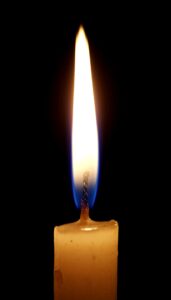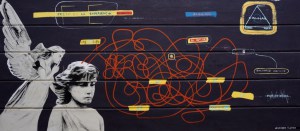
This year began with tears
dark nights where there was
no teapot whistling on the stove to
keep us warm.
Many of us had hopes and dreams
but they were dashed like an ocean
wave across a rocky coast.
How can we dream when there is
fear in every corner and news article?
There is no way God is with us, even in all of this.
What if God is in the dark eyes of a stranger
whose prayers are dusty with words in another language?
What if God is in the hopefulness of children who huddle in emergency rooms
faces all blood and bruises, orphaned by another chemical attack?
What if God is in the silence and fear of not wanting to go outside
because you are the wrong color and might get shot?
I am convinced that God is much more with us
when we are oppressed and broken than
when all of our prayers are coming true.
God is in the unanswered promise
and the trial that makes us question our identity
God is in death and near to us who feel
poverty crumbling our bones to shreds.
In the midst of pain, homelessness and disease
he takes our paralytic hands
and leads us to a manger
The King lays there
in a place filled with hay and manure.
Where a single star shines and pierces the threat of darkness.
Katelyn Durst is a community artist, creative activist, teacher and youth worker. She has worked within urban youth development and urban community development for ten years and has taught poetry for six years, recently conducting poetry therapy workshops at a youth psychiatric hospital, and for Freedom Schools summer programming in a workshop focused on healing from the unjust deaths of youth of color. Katelyn is currently pursuing a master’s in Urban Studies and Community Arts from Eastern University with a focus on trauma-informed art-making to build sustainable and transformative resiliency within urban/inner-city and displaced communities. In her spare time, she dreams of becoming an urban beekeeper. She is poet-in-residence at The Mudroom.


